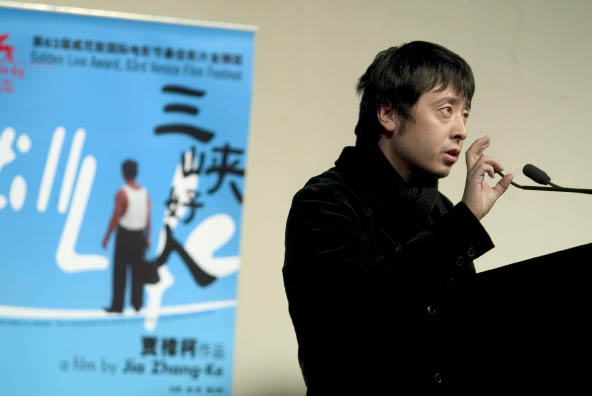Intelligent Chinese Films Hit the Mainstream
By staff reporter LU RUCAI
ON December 9, 2012, Nobel Laureate in Literature Mo Yan sat down to watch a film with a group of Swedish and Chinese exchange students in Stockholm, Sweden. It was no ordinary film; Red Sorghum was adapted from the great man of letters’ novel of the same title, and also represented the directorial debut of Zhang Yimou, of House of Flying Daggers fame. After the viewing, Mo talked with the students about the film, and discussed the real-world themes portrayed in it.
Red Sorghum is regarded as one of the greatest Chinese films ever made. At the 38th Berlin International Film Festival held in 1988 it won the Golden Bear for Best Picture, defeating favorites for the award such as Komissar, a highly acclaimed Soviet Union film. Zhang Yimou received high praise from all 11 judges at the festival.
After its triumph in Berlin, Red Sorghum took the fancy of juries worldwide and won countless other awards. It is generally recognized as the first Chinese film to steal the limelight at top international film festivals. It also propelled its director from obscurity to worldwide fame, almost overnight. But more importantly, the film kindled Chinese filmmakers’ passion and ambition. Red Sorghum kick started a creative revolution in the country’s film industry, the results of which are evident today.
 |
| Jia Zhangke was the second director from China’s mainland to win the Venice international Film Festival Golden Lion Award. |
Eastern Fever
In the late 1980s and early 1990s, Zhang Yimou was a dominant force in the domestic and international film scene. His first 11 features picked up more than 80 top-level awards, roughly 60 of which were awarded by foreign juries and filmgoers. Red Sorghum earned him 19 awards, Judou won six accolades, Raise the Red Lantern received 14, The Story of Qiu Ju won eight, Shanghai Triad won seven, Not One Less won 12, and The Road Home won nine. It’s a tally matched by very few directors from any country, let alone from China.
When Zhang sought out Mo Yan to talk about shooting a film adaptation of his novel Red Sorghum, Zhang was well known domestically as an expert cinematographer with impressive representative works, such as Yellow Earth. As a director, though, Zhang would be in the deep end.
Zhang hit his first directorial hurdle before filming even got underway. Mo’s novel recounts endless fields of red sorghum covering the countryside around his hometown in Gaomi County of Shandong Province. But the fields had long since disappeared. To reproduce the scene, the Red Sorghum production crew planted about 10 hectares of red sorghum in Gaomi in the spring of 1987. Their efforts were rewarded with both a healthy crop and sizable box office receipts at home and abroad.
The release of Red Sorghum in China was a box-office phenomenon. At a time when ticket prices were the equivalent of only a few pennies, demand for seats to see Red Sorghum saw cinemas charging upwards of RMB 10. And the crowds were willing to pay. The film accurately portrayed life in the Chinese countryside, and hence appealed to the common man in a way very few films had done before.
After Red Sorghum’s successful debut at the Berlin International Film Festival, Zhang soon firmly secured his position as a leading representative of China’s fifth-generation film directors. Follow-ups like Ju Dou, Raise the Red Lantern, The Story of Qiu Ju and To Live cemented his international reputation.
Ju Dou was a standout – it was the first Chinese film to win a nomination for the Academy Award for Best Foreign Language Film (1991). It also received the Luis Bunuel Special Award at the 43rd Cannes Film Festival.
Ju Dou’s action takes place in the 1920s in a small southern Chinese town. The tragic story focuses on the female protagonist Ju Dou (played by Gong Li), a pretty young woman sold to be the wife of Yang Jinshan, owner of a dye house who is 30 years older than her. Yang is perverted, abusive and killed his two former wives when they failed to become pregnant. Ironically, Yang is impotent.
Ju Dou falls victim to Yang Jinshan’s abuses. Yang Tianqing, Jinshan’s adopted nephew who works at the dye house, shows compassion for Ju Dou and the couple fall into an illicit love affair. Ju Dou becomes pregnant from Tianqing and gives birth to a baby boy. Knowing nothing of the affair, Jinshan rejoices and names the child Tianbai.

